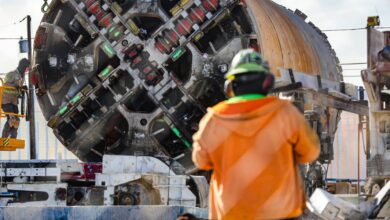

Return-to-office mandates are increasingly common, but companies are rapidly downsizing their offices and worried about whether they’ll be able to keep their current one.
That’s the seemingly paradoxical upshot of a new survey by the Boston-based workplace strategy firm Robin, which questioned over 500 business owners and facilities managers about their office plans and remote-work and return-to-office policies.
The results show that 88% of companies now mandate that employees work a certain number of days in the office, up from 69% a year ago. Yet 75% plan to reduce office square footage next year, compared to 46% in 2022.
“It looks like an opposing trend but it’s really not,” Robin CEO Micah Remley told the Boston Globe. “Over the past year, we’re finally seeing companies have a vision of what they want to accomplish in their office space, and they’re putting those plans into action.”
What they want, he said, is “a flexible office space deeply focused on collaboration.”
The survey also found that 80% of companies have already downsized their office since the pandemic, and 82% are worried about being able to keep their current one, whether that’s due to a recession or an underutilization of space.
The results showed more companies making fuller use of their existing offices, however. In the survey, 56% of respondents said the majority of their employees work in the office full time, up 19% from last year. And 40% of said the majority of their teams work hybrid, down 21% from 2022. Only 4% said their company was fully remote.
Of the respondents mandating part-time in office, the breakdown was 52% requiring four days, 26% three days, 16% two days, and 3% one day.
Of those rejecting hybrid altogether, reasons varied, with 42% saying they’ve already invested in a new office space, 30% saying they’re unwilling to compromise their in-office culture, and 27% saying their employees are unable to work outside of the office.
For remote workers who oppose return-to-office mandates, the survey is more bad news. In a viral TikTok video, a Gen Zer expressed her horror at the 10-hour day required to commute to an office for her first job. In Australia, an Indian investor recently told remote workers their jobs were ripe for outsourcing to his country. And ChatGPT maker OpenAI, whose CEO Sam Altman called the remote work “experiment” one of tech industry’s worst mistakes, recently sealed a deal for 486,600 square feet in new office space in San Francisco.
But as the Wall Street Journal recently reported, office attendance in large cities is still only about half the level seen in 2019. That’s despite a slight uptick and tough talk from high-profile CEOs about enforcing return-to-office policies.
Lenny Beaudoin, executive managing director at real estate firm CBRE, gave Robin one reason companies are cutting office space even as they increasingly call workers back to the office:
“Organizations held more space in the past for contingency, and what they’re realizing is, through hybrid work and the way their employees are actually utilizing the space, they can actually reduce some of the space they hadn’t used in the past, because they don’t need it as a contingency like they once did, when everybody was coming to the office every day.”
Source link




